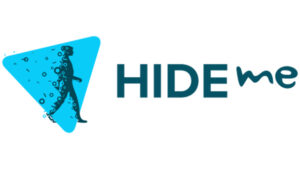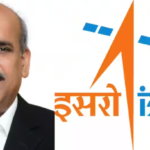Personal Loans- Personal loans are a flexible and versatile option for those seeking financial assistance, as they can be obtained from various sources such as traditional banks, credit unions, and online lending platforms. These loans generally range from $1,000 to $50,000 or even up to $100,000 with select lenders. Personal loans also offer quick access to cash as many providers can disburse funds within a few business days after approval.One of the significant benefits of personal loans is their flexibility. Borrowers can use them for various purposes ranging from debt consolidation to medical bills or home improvement projects. Another advantage is that personal loans typically come with fixed interest rates and monthly payments making it easier for borrowers to budget and plan their finances.
When looking for a lender, it’s crucial to compare interest rates and fees to ensure that you get the best possible deal. Having a good credit score can also help you secure more favorable terms on your loan such as lower interest rates or higher loan amounts.Finally, it’s important to read the terms and conditions carefully before signing on the dotted line to avoid any surprises down the road. Ensure that you understand all details such as repayment terms, late payment fees, prepayment penalties, and any other associated costs. By doing so, you can make an informed decision about the loan that best suits your needs while also avoiding any financial pitfalls in the future.
Outlines Of Guide
ToggleBest Personal Loans of 2025
- SoFi – Best Overall Personal Loan
- LightStream – Best for Low Interest Rates
- LendingPoint – Best for Fast Funding & Below-Average Credit
- Upgrade – Best for Bad Credit
- Universal Credit – Best for Comparing Multiple Offers
- Discover – Best for No Interest If Repaid Within 30 Days
- Upstart – Best for Loans as Low as $1000
- Avant – Best for Range of Repayment Options
SoFi®
Why We Picked It
SoFi’s personal loans are notable for their high loan amounts and the option for extended loan terms. The loans range from $5,000 to $100,000, catering to individuals with strong credit who require a substantial loan. The available loan amounts may differ based on the state of residence. Repayment terms vary from two to seven years, offering great flexibility for individuals with a credit score of at least 650 and an annual income of $45,000 or more.
Pros & Cons
Pros
- Prequalification with soft credit check
- Funding in as little as one to two days
- High loan amounts and lengthy terms
Cons
- Does not offer direct payment to third-party creditors for debt consolidation
- Some applicants report difficult qualification standards
- Co-signers are not permitted
Overview
Established in 2011, SoFi is an internet-based lending platform that provides unsecured fixed-rate personal loans in all states, with over $50 billion in loans extended. SoFi offers relatively low APRs and does not impose origination fees, late fees, or prepayment penalties, which is noteworthy as many personal loan lenders typically charge origination or late payment fees at the very least. If you’re thinking about getting a debt consolidation loan from SoFi, remember that the lender doesn’t directly pay off a borrower’s other creditors. Instead, the loan amount will be deposited into your bank account, and you’ll be responsible for paying off your other lenders separately.
Eligibility
- Minimum credit score required: 650
- Minimum annual income: $45,000
- Co-signers not permitted
Loan uses
- Medical expenses
- Credit card consolidation
- Home projects
- Moving costs
LightStream
Why We Picked It
If you’re looking for a personal loan, LightStream may be an appealing option due to its low interest rates and flexible terms. The lender offers both a low minimum and maximum interest rate, as well as a rate-beat program. LightStream’s unsecured personal loans range from $5,000 to $100,000 and vary based on the loan purpose. Moreover, LightStream does not charge any origination, late payment or prepayment fees which makes it even more attractive for borrowers. Additionally, enrolling in autopay can get you a 0.50% rate discount which is another added benefit.
Pros & Cons
Pros
- No origination, prepayment or late fees
- Low, competitive rates
- Fast approval and funding
Cons
- No prequalification process
- No due date flexibility
- Limitations on use of loan proceeds
Overview
LightStream, a division of Truist resulting from the merger of SunTrust Bank and BB&T, provides unsecured personal loans ranging from $5,000 to $100,000 with varying amounts based on the loan purpose. While there are lenders that offer smaller loans, LightStream stands out with its higher maximum loan amount and repayment terms ranging from two to seven years. LightStream provides loans in every state, including Washington, D.C., and applicants can reach out to the lender’s customer support team seven days a week. Existing borrowers can access customer support from Monday to Saturday. Although LightStream does not have a mobile app for managing loans, customers can manage their accounts through LightStream.com.
Eligibility
- Applicants should have several years of credit history
- Minimum credit score: 660
- Can’t prequalify
Loan uses
- Large expenses
- Finance land, timeshares and tiny homes
- Home project
LendingPoint
Why We Picked It
LendingPoint personal loans are accessible to individuals with fair credit scores, as the minimum credit score requirement is 600. The lender offers quick turnaround times, making it an appealing choice for those seeking a personal loan. Loan amounts range from $2,000 to $36,500, with a minimum loan amount of $3,500 for Georgia loans. Repayment terms vary from 24 to 72 months, or two to six years.
Pros & Cons
Pros
- Quick funding
- Low credit score requirements
- No prepayment penalty
Cons
- Origination fee up to 10%
- Co-signers or joint loans not permitted
- Not available in Nevada and West Virginia
Overview
LendingPoint, an Atlanta-based online lending company, provides personal loans to potential borrowers in 48 states and Washington D.C., excluding Nevada and West Virginia. Eligible applicants in these states can conveniently apply online and receive fast funding. LendingPoint has two primary drawbacks: high maximum APRs and origination fees. Although you can usually steer clear of high APRs with a strong credit score, the origination fees with LendingPoint (as high as 10%) vary based on your state of residence.
Eligibility
- Minimum credit score: 600
- Must live in a state other than Nevada or West Virginia
- Doesn’t allow co-signers or co-applicants
Loan uses
- Debt consolidation
- Home project
- Medical expenses
Upgrade
Why We Picked It
If you have a bad credit score, Upgrade personal loans offer accessible qualification requirements that make them the best loan option for you. With Upgrade, there is no minimum income requirement, and a credit score of 580 or above is sufficient to qualify for the loan. The lender offers loan amounts ranging from $1,000 to $50,000 with flexible repayment terms of two to seven years. Upgrade personal loans can be an excellent choice for borrowers who need funds quickly and have limited options due to their poor credit rating. It is important to note that interest rates may vary based on factors such as creditworthiness, income, and loan amount.
Pros & Cons
Pros
- Low minimum credit score requirement
- Borrowers can use loans to cover business expenses
- Offers direct lender payoff for debt consolidation loans
Cons
- High APR range
- Charges fees for origination, late payment and insufficient funds
Overview
Upgrade was introduced in 2017, offering convenient online and mobile credit and banking services. Since then, the platform has extended over $3 billion in credit to more than 10 million applicants and is still growing its online and mobile services. Upgrade charges a loan origination fee ranging from 1.85% to 9.99%, and borrowers will face a $10 fee for late payments exceeding 15 days or failed payments; no autopay discounts are available. However, Upgrade borrowers do not face a prepayment penalty, allowing for potential cost reduction by paying off the loan early.
In addition to providing easily accessible personal loans, Upgrade simplifies the borrowing process through a mobile app that enables borrowers to check their balance, make payments, and update personal details. Upgrade’s Credit Health tool also facilitates the tracking of your credit score throughout the duration of your loan.
Eligibility
- Minimum credit score: 580
- No minimum income requirement
- Allows co-applicants
Loan uses
- Debt consolidation
- Home projects
- Large expenses
- Business expenses
Universal Credit
Why We Picked It
Universal Credit is a financial technology company that provides personal loans ranging from $1,000 to $50,000 through its partners. The repayment period varies from three to seven years. Despite making personal loans available to individuals with poor credit, Universal Credit has some drawbacks. Firstly, it imposes high APRs, exceeding the most competitive rates on our list. Secondly, Universal Credit applies a 5.25% to 9.99% origination fee to all personal loans.
Pros & Cons
Pros
- Flexible qualification requirements
- Next-day funding
- No prepayment penalty
Cons
- High APRs
- All personal loans charge a 5.25% to 9.99% origination fee
Overview
Universal Credit, powered by Upgrade, is an online lending company that provides loans through partners Cross River Bank and Blue Ridge Bank. Its loans are available in all states except Iowa, West Virginia, and Washington, D.C.
Eligibility
- Minimum credit score: 580
- Minimum income requirement: Does not disclose
- Doesn’t allow co-signers or co-borrowers
Loan uses
- Debt consolidation
- Large expense
- Home project
Discover
Why We Picked It
Discover Personal Loans is a highly sought-after lending option for borrowers looking to take out loans between $2,500 and $40,000. One of the key features that sets Discover apart is the ability for borrowers to repay their loans interest-free within 30 days. Additionally, the company offers an easy-to-use online application process and mobile banking tools that make managing loans more convenient. Along with their user-friendly platform, Discover has received rave reviews for its customer support team and fast funding options that allow borrowers to get the money they need quickly. Loan terms typically range from three to seven years, providing flexibility for borrowers in choosing a repayment plan that works best for them.
Pros & Cons
Pros
- Option to pay off creditors directly
- No origination fees or prepayment penalties
- Directly pays creditors
Cons
- Charges late fees
- Low maximum loan amount
Overview
Discover operates as an internet-based financial institution that provides credit cards, retirement options, and personal loans across the entire United States. While Discover imposes a late payment fee and does not provide an autopay discount, it does not apply any origination fees or prepayment penalties, positioning it as a strong contender among leading personal loan providers.
Eligibility
- Minimum credit score: 660
- Minimum household income: $25,000
- Doesn’t allow co-signers or co-borrowers
Loan uses
- Medical bills
- Business expenses
- Home renovation
Upstart
Why We Picked It
Upstart’s personal loans provide a versatile array of options for borrowers, with amounts ranging from $1,000 to $50,000, ensuring that you only borrow what you need and avoid paying interest on unnecessary funds. Upgrade is an accessible choice for a wide range of borrowers as it has a low minimum credit requirement of 300. Additionally, Upstart utilizes artificial intelligence and machine learning algorithms to assess the creditworthiness of applicants, allowing them to consider factors such as work experience and education level in addition to traditional credit scores. This approach can help individuals who may have limited credit history or other unique circumstances qualify for a loan.
Pros & Cons
Pros
- Accessible to borrowers with fair credit
- Offers prequalification with a soft credit check
- Ability to choose a custom payment date
Cons
- Charges an origination fee up to 8% of the loan amount
- No secured or co-signer option
- Loans only available for three-, five-, seven-year terms
Overview
Upstart has established a presence in the personal loan industry by utilizing artificial intelligence and machine learning to assess borrower eligibility. Upstart claims that it has approved 27% more borrowers compared to a traditional lending model. Upstart’s loan terms of three, five, and seven years may be more limiting compared to other lenders, but they could be a suitable compromise for applicants who may not qualify with traditional lenders. Additionally, it is accessible in all states except West Virginia and Iowa, making it as widely available as other leading lenders.
Eligibility
- Minimum credit score: 300
- Minimum income requirement: $12,000
- Doesn’t allow co-signers or co-borrowers
Loan uses
- Debt consolidation
- Medical expenses
- Educational expenses
Avant
Why We Picked It
Avant’s personal loans offer a flexible minimum amount and an extended repayment period of two to five years. This makes it an attractive option for borrowers who require a quick and easy loan. However, the maximum loan amount is relatively low compared to other lenders in the market. Additionally, Avant charges an administrative fee of up to 4.75% of the loan amount, which can be quite steep. Moreover, Avant’s APR range (9.95% to 35.99%) is on the higher side for applicants who possess a good to excellent credit score and do not qualify for any autopay discount. Borrowers should consider these factors before applying for a personal loan from Avant and explore other options that may better suit their needs.
Pros & Cons
Pros
- Secured and unsecured loan options available
- Low credit score requirement (580)
- Loan terms available up to 60 months
Cons
- Charges an upfront administrative fee
- High starting APR for prime borrowers
- Co-signers and co-applicants not allowed
Overview
Established in 2012 and headquartered in Chicago, Avant is a consumer lending platform that provides secured and unsecured personal loans through a third-party bank (WebBank). Unsecured loans are accessible in Washington, D.C. and all states except Hawaii, Iowa, New York, Vermont, West Virginia, and Maine. The platform focuses on middle-income borrowers with fair to good credit and mandates a minimum score of 580 for eligibility.
Eligibility
- Minimum credit score: 580
- Minimum income: $20,000
- Doesn’t allow co-signers or co-borrowers
Loan uses
- Debt consolidation
- Large expenses
- Home projects
Complete Guide to Personal Loans
- What Is a Personal Loan?
- Reasons to Get a Personal Loan
- What’s the Largest Personal Loan You Can Get?
- What Loan Term Length Should You Choose?
- Current Average Personal Loan Interest Rates
- Pros and Cons of Personal Loans
- Best Place to Get a Personal Loan
- How To Get a Personal Loan
- Recap of the Best Personal Loans of 2025
- Methodology
- FAQs
What Is a Personal Loan?
A personal loan is a flexible type of financing that borrowers can obtain from traditional banks, credit unions, or online lenders. It is a lump-sum amount that can be used for a variety of expenses, including medical bills, auto repairs, home improvement projects, and debt consolidation. These loans typically have repayment terms ranging from two to seven years and offer competitive interest rates starting at 3% for highly qualified borrowers. Personal loans are an excellent option for those who need immediate funds and want to avoid using high-interest credit cards or tapping into their savings. It’s important to note that personal loans require good credit history and steady income to qualify for the best rates and terms.
How Do Personal Loans Work?
Personal loans are a popular financial product that can be obtained from banks, credit unions, and online lenders. The application process involves filling out an application online or in-person and waiting for a decision on approval or denial. If approved, borrowers receive their funds as a lump-sum payment into their bank account, and interest begins to accrue from the first month. Personal loans typically require fixed monthly payments over the entire loan term, which is usually between one to seven years. One of the benefits of personal loans is that many can be funded within a few business days, so you don’t have to wait long to get the money you need. It’s important to compare rates and terms from multiple lenders before applying for a personal loan to ensure you get the best deal available.
Reasons To Get a Personal Loan
- Emergency expenses.In case you require immediate funds for unforeseen costs such as medical bills, funeral expenses, vehicle repairs, or other urgent needs, an emergency personal loan can be utilized.
- Debt consolidation. Consolidating high-interest debt through personal loans can help save money on interest and simplify your payments.
- Home improvements and repairs.You can apply for a home improvement personal loan to finance your upcoming home project or unexpected home repairs and maintenance expenses.
- Auto financing. Although auto loans are the most popular method for financing a vehicle, personal loans can also be utilized for this purpose. Personal loans offer more flexibility in terms of the vehicles you can buy, but they generally come with higher interest rates compared to conventional auto loans.
- Moving costs. The expenses of relocating can accumulate rapidly. If you lack available funds, a personal loan for moving can assist you in covering the expenses.
Who Is a Personal Loan Right For?
Personal loans can serve as a valuable financial resource for individuals in need of funds for planned expenses or debt consolidation. While they can be particularly useful during emergencies, it is crucial to be mindful of their potential high costs and the potential challenges of repayment. Prior to obtaining a personal loan, it is essential to thoroughly evaluate the interest rates, fees, and repayment conditions linked to the loan. Furthermore, it can be advantageous to investigate alternative solutions like credit cards or lines of credit to ascertain the most appropriate option based on your individual financial circumstances.
When you borrow money, you will need to pay back the principal amount along with any interest and fees, resulting in a total expense higher than the initial amount. For instance, if you borrow $2,000 for auto repairs and take a one-year loan with an 11% interest rate, you will end up owing $121.16 in interest, making your total repayment $2,121.16. Utilize a personal loan calculator to determine the potential cost of a personal loan, including the interest. Additionally, the loan calculator can provide an estimate of your loan payments.
What’s the Largest Personal Loan You Can Get?
The loan amount that you can avail of depends on your creditworthiness and the terms offered by a lender. Personal loans usually range from $1,000 to $50,000; however, some lenders may offer up to $100,000. Lenders usually reserve higher loan amounts for well-qualified applicants since these transactions pose a greater risk for them. Factors such as credit score, income, and debt-to-income ratio are considered when determining the loan amount. It is important to shop around and compare offers from different lenders to find the best deal that meets your needs and financial situation.
When taking out a personal loan, it is essential to borrow only the amount you need and not more. This is because interest will be charged on the entire loan amount, which can significantly increase the overall cost of the loan. To determine your ability to repay the loan, it is recommended that you use a personal loan calculator to estimate your monthly payments and ensure that you can afford the desired loan amount. This tool can provide valuable insights into how much interest you will pay over time, as well as how long it will take to pay off the loan. By using this information, you can make an informed decision about whether a personal loan is right for your specific financial situation.
What Loan Term Length Should You Choose?
The length of your personal loan term is a crucial factor in determining both your monthly payment and interest charges. Shorter-term loans come with higher monthly payments but lower interest charges overall, whereas longer-term loans offer smaller monthly payments but a higher amount of interest paid over the life of the loan. It is important to carefully consider the length of the loan term and choose one that aligns with your financial goals and budget. Additionally, it is essential to compare different lenders’ offers and their associated terms before finalizing a loan agreement as it can significantly impact your financial situation.
When it comes to borrowing money, the length of the loan term can affect the amount of interest you pay overall. For instance, if you borrow $3,000 with 11% interest over a year, you would owe $265 per month and $182 in interest overall, meaning you’d pay back a total of $3,182. However, if you extend that same loan over three years, your monthly payment would be lower at $98 per month but your total interest payments would increase to $536. This means that while shorter loan terms can save you money in the long run, they may require higher monthly payments which may not be feasible for everyone. It’s important to consider your budget and financial situation before deciding on a loan term.
Current Average Personal Loan Interest Rates
| 3-year | 15.21% | 0.37% |
|---|---|---|
| 5-year | 21.21% | −1.01% |
Average Personal Loan Interest Rates By Credit Score
Experian provides estimated interest rates based on VantageScore risk tiers. However, it’s important to note that lenders determine actual rates. It’s crucial to compare offers from multiple lenders and consider factors like credit score, income, and debt-to-income ratio. By researching and understanding personal loan interest rates, borrowers can make informed decisions that suit their financial needs.
| Vantage V4 credit score | Average interest rate |
|---|---|
|
Deep subprime (300-499)
|
15.30%
|
|
Subprime (500-600)
|
15.91%
|
|
Near prime (601-660)
|
15.56%
|
|
Prime (661-780)
|
10.93%
|
|
Super prime (781-850)
|
6.59%
|
Best Personal Loans by Credit Score
- Best Personal Loans for Excellent Credit
- Best Personal Loans for Good Credit
- Best Personal Loans for Fair Credit
- Best Bad Credit Personal Loans
Pros & Cons of Personal Loans
Pros
- Interest rates and monthly payments remain fixed throughout the life of the loan
- Fewer qualification requirements than other financing methods, such as lower minimum credit score requirements
- You can use personal loans for a variety of reasons
Cons
- You have to repay the full amount of your loan, even if you end up not needing it all
- Borrowers pay interest on the full loan amount
- Possible origination fees between 1% and 8% of the loan amount
Best Place to Get a Personal Loan
You can get personal loans from three types of institutions:
- Online lenders. These are often technology-based non-bank companies that offer a small range of lending products, including personal loans. Online lenders typically offer low interest rates, loans that are available nationally and can provide funds within 24 to 48 hours.
- Banks. Many local and national banks offer personal loans in addition to other financial products, such as checking and savings accounts. If you have an existing relationship with a bank, you may want to consider opening your personal loan through that bank.
- Credit unions. These are local to your community and tend to offer applications both online and in person. Credit unions require membership, so be sure to check if you’re eligible.
The best place to get a personal loan is where you can access the most favorable terms and loan limits that fit your needs.
How to Get a Personal Loan
The process for applying for a personal loan varies by lender, but you can generally follow these steps.
- Check your credit score. Start by checking your credit score for free through your credit card issuer or another website that offers free scores. This will give you an understanding of your creditworthiness and your qualification chances. Aim for a score of at least 610; however, a score of at least 720 will yield the most favorable terms.
- If necessary, take steps to improve your credit score. If your score falls below 610 or you want to boost your score to receive the best terms possible, take time to improve your credit score before applying, such as lowering your credit usage or paying off unpaid debts.
- Determine how much you need to borrow. Once you check your credit score, calculate how much money you want to borrow. Remember, though, you’ll receive your money as a lump sum, and you’ll have to pay interest on the entire amount—so only borrow what you need.
- Shop around for the best terms and interest rates. Before submitting your application, numerous lenders offer prequalification, allowing you to view the potential terms through a soft credit inquiry. This enables you to explore the best rates without impacting your credit score.
- Submit a formal application and await a lending decision. After you find a lender that offers you the best terms for your situation, submit your application online or in person. Depending on the lender, this process can take a few hours to a few days.
How To Get a Personal Loan With Bad Credit
If you have bad credit, finding a loan with affordable interest rates can be challenging since many lenders only cater to individuals with good credit. However, by conducting thorough research and identifying lenders who offer flexible qualification requirements, you can increase your chances of finding a better loan. Some lenders specialize in providing loans to individuals with bad credit, and they may offer competitive rates and favorable terms. Additionally, improving your credit score by making timely payments on existing debts and reducing balances can also help you qualify for more favorable loan options.
Correcting any errors on your credit report is crucial to improve your credit score and increase your chances of qualifying for a personal loan with bad credit. Contacting the credit bureaus to get any mistakes rectified can positively impact your creditworthiness. Additionally, if you are struggling to qualify for a loan due to a low credit score, finding a co-signer can be an effective solution. A co-signer with good credit can help you secure the loan and potentially even lower the interest rate. However, it’s important to remember that the co-signer will also be responsible for the loan if you default on payments, so make sure to choose someone who is financially stable and trustworthy.
Summary
We evaluated 29 well-known lenders using 16 data points across loan details, loan costs, eligibility and accessibility, customer experience, and the application process. The 8 top lenders were selected based on the assigned weight for each category.
- Loan details: 20%
- Loan cost: 35%
- Eligibility and accessibility: 20%
- Customer experience: 15%
- Application process: 10%
Personal Loans of 2025: Frequently Asked Questions
What is a good interest rate on a personal loan?
For a personal loan, a favorable interest rate is one that is below the national average for individuals with outstanding credit. However, the interest rate offered to you is influenced by various factors, and lenders often impose additional charges that can increase the overall cost of the loan. To reduce expenses, it is important to maintain a credit score ranging from good to excellent (at least 670).
How are APRs determined for personal loans?
The annual percentage rate (APR) represents the overall yearly cost of a loan throughout its duration. In other words, it encompasses the complete credit cost, considering the interest rate, fees, and repayment period. Depending on the lender, some APRs may incorporate origination fees, while others deduct them from the loan amount upon funding. The APR for a personal loan is subject to variation based on factors such as creditworthiness, loan amount, repayment duration, and the specific lender.
What fees should I look out for when choosing a personal loan?
Typical charges linked to personal loans comprise origination fees, late payment fees, and returned check fees. In addition, certain lenders impose a prepayment penalty on borrowers who choose to settle their loans ahead of time. It’s worth noting that numerous lenders provide a fee-free arrangement that can lower expenses throughout the loan term, underscoring the importance of comparing loan terms from various sources.
What can you use a personal loan for?
Personal loans are generally limited to personal expenses, such as home improvement, travel, weddings, car-related costs, and debt consolidation. Banks, however, usually do not allow personal loan funds to be used for post-secondary education, business expenses, or illegal activities.
Most lenders require applicants to state the purpose of the loan, but some banks are stricter, insisting that the loan is used for the specific purpose stated in the initial application.
How many personal loans can you have at once?
It is possible to have multiple personal loans from a single lender or from different lenders, but some lenders may impose a limit on the number of loans you can have with them, for example, two loans. Having multiple loans may also negatively impact your eligibility by making you seem like a higher-risk borrower.
Can you refinance a personal loan?
When considering refinancing your personal loan, you will have to apply for a new loan and utilize the funds to settle your current loan. It is advisable to pursue refinancing when your credit scores have risen, allowing you to qualify for a lower interest rate. Refinancing may also be beneficial if you aim to decrease your monthly payments by extending the duration of the loan.
How long does it take to get a personal loan?
Getting a personal loan usually doesn’t take much time. While some lenders provide online applications with automated approvals and same-day funding, most lenders take several business days to a week to process your application and disburse your funds.
Verification of information by the lender may result in a longer process. Keep an eye out for any communication from your lender after applying for a loan, and be sure to respond promptly.
What is the easiest personal loan to get?
The most accessible personal loan to obtain is the one that has minimal or no credit score and income prerequisites. Despite their appeal, these loans frequently carry steep interest rates and fees, rendering them costly to borrow and challenging to settle. Prior to accepting such a loan, ensure that you comprehend the associated fees and the repayment conditions.
How do I manage a personal loan?
Upon agreeing to a personal loan, it is essential to effectively handle the repayment process to ensure that your loan remains up to date. Begin by locating your scheduled payment deadline, which is typically outlined in your loan contract. Following this, arrange for automatic payments to avoid missing any loan installments. Lastly, verify that your lender is receiving your payments following the initial withdrawal.










































